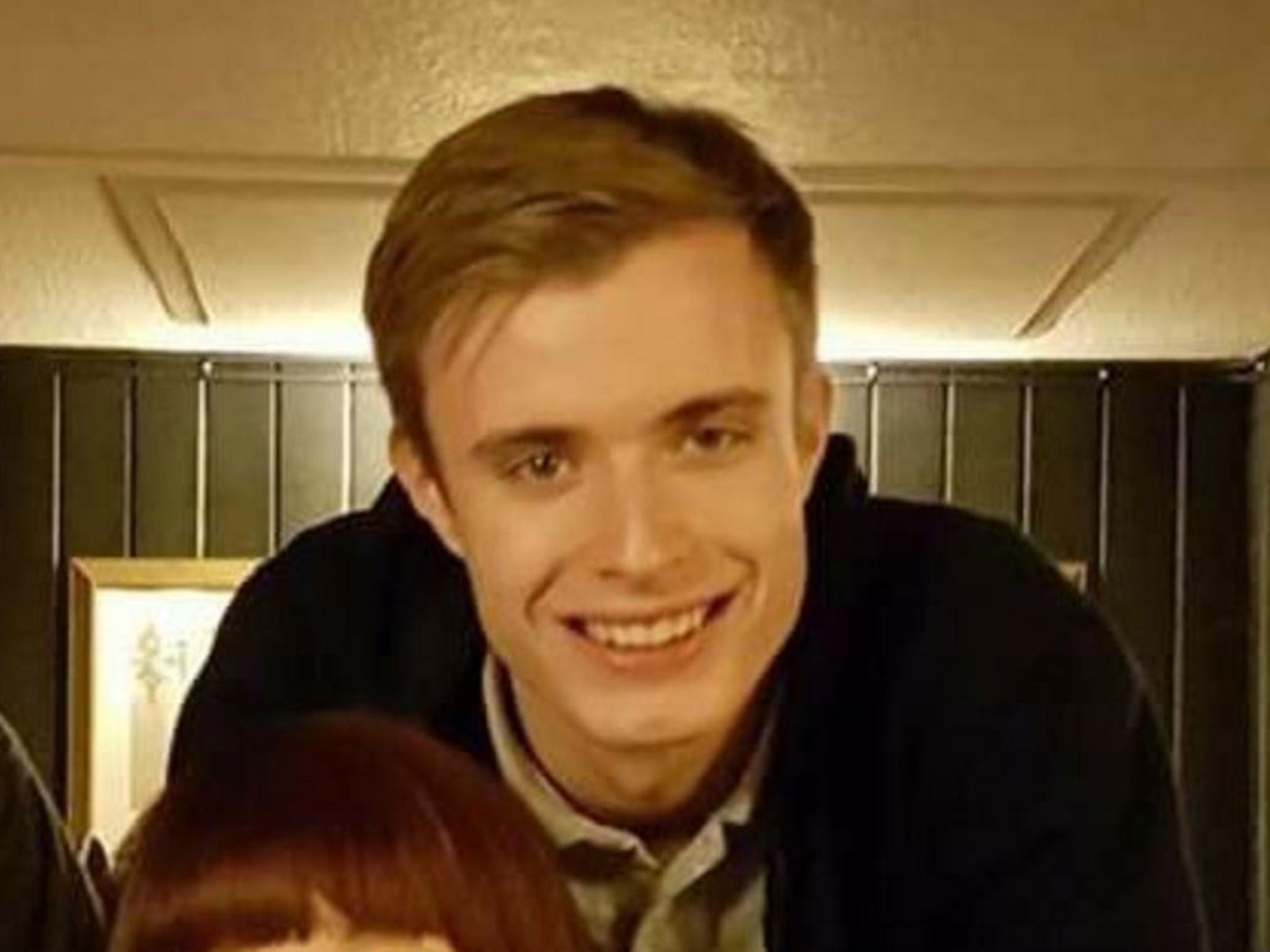Oliver Mears: Judge demands to know why two-year rape case against Oxford student dropped days before trial
Teenager put his degree on hold after having accusation hang over him for two years

A rape case against an Oxford University student has been dropped in the latest scandal over failures by police and prosecutors to find and disclose crucial evidence.
Oliver Mears, 19, suspended his chemistry studies at St Hugh's College while awaiting trial for allegedly raping and assaulting a woman at a party in July 2015.
But days before it was due to start, the Crown Prosecution Service (CPS) announced it would not be presenting any evidence against him after receiving new material from Surrey Police.
The force has announced a review of all rape cases, becoming the second British force to take the unprecedented move following the Metropolitan Police.
A judge hit out at the “unnecessary delay” in the police investigation and demanded to know how the case had reached such a late stage.
Appearing at Guildford Crown Court to explain prosecutors’ actions, barrister Sarah Lindop said they had been awaiting information from the complainant’s diary, sensitive information relating to her and evidence from seized electronic devices.
“In light of the new information the prosecution no longer had a realistic prospect of success,” she added.
“The decision was made at a number of levels for the case to continue no more.”
Ms Lindop described the case against Mr Mears as “finely balanced” from the start, saying prosecutors had to make a specific application to obtain certain materials from the police and had been requesting to see the complainant’s diary since October.
“We were also awaiting confirmation from the police in terms of the digital devices seized and their investigation into those,” she added. “This is not a disclosure case per se.
“There was a diary produced. Part of that was disclosed, we asked for the full copy of it...the police have been trying to secure that.
“I have been made aware of it coming into the possession of the Crown last week. That contains material that was not of assistance to the prosecution.”
Mr Mears was just 17 when he was arrested on suspicion of the alleged assault at a party in Horley, with other teenagers who were present due to be called as witnesses in the trial.
He was not present to hear the judge formally clear him of all charges on Friday but his mother told reporters she was “genuinely delighted” while leaving the court.
A string of rape cases have fallen through in little over a month after police seized phones and other devices but failed to examine them properly, meaning crucial evidence was not passed to prosecutors.
Messages and photos uncovered by defence lawyers at a later stage, sometimes even during trials, have then resulted in cases being thrown out of court.
But in Mr Mears’ case, the prosecution suggested police had not obtained the necessary material at all, raising questions over why the student was charged.
Recording not guilty verdicts for rape and sexual assault by penetration – which the teenager had always denied – Judge Jonathan Black ordered the CPS to provide a full explanation of what happened within 28 days.
“For a case as finely balanced as you say, there has been an unnecessary delay investigating appropriate avenues, leading to what seems to be a completely unnecessary last-minute decision,” he told the court.
““Both Mr Mears and the complainant have had this matter hanging over their heads for two years in circumstances that, had the investigation been carried out properly in the first instance, would not have led to this position.”
The CPS first notified Judge Black of its decision in writing but he ordered a prosecutor to attend court to explain its reasons in public.
Surrey Police said the case was discontinued for "a number of reasons" after conducting a review, only one of which related to its investigation.
"This is an investigative issue and not related to disclosure." said Jon Savell, the force's head of public protection.
“We accept that there were flaws in the initial investigation. It was not expedient and the investigator did not examine the victim’s digital media during the initial stages of the investigation or follow what we would consider to be a reasonable line of enquiry."
Mr Savell said all evidence gathered by police was submitted to the CPS in May last year, with the decision to prosecute Mr Mears made the following month.
On 4 January, the CPS requested that police provide material from the alleged victim’s "digital media", with officers obtaining the devices and providing it on Monday.
“Surrey Police deeply regrets mistakes made in the efficacy of investigations and will always seek to implement continual improvement and specific learning points," Mr Savell said.
“Since 2015 we have reviewed our structure and the resources dedicated to the investigation of child and adult rape and serious sexual offences.
"Significant investment has been made in resourcing levels and training...we are reviewing all our current rape cases to ensure that investigations are thorough, timely, effective and compliant with policy and guidelines.
“We will also work with the CPS to conduct a joint review of this case.”

The hearing came a day after the Director of Public Prosecutions, Alison Saunders, claimed no innocent people are in prison because of failures to disclose vital evidence, despite admitting there is a “systemic issue”.
Critics dismissed the assurance as impossible in the wake of high-profile collapsed rape prosecutions, with lawyers warning other crimes including a recent bribery case were being affected by a “crisis in the system”.
One man had his rape conviction overturned last month after serving four years in prison, with a judge finding he may not have been found guilty if previously unseen Facebook conversations were shown to jurors.
Earlier this week, an Eritrean rape suspect who was under investigation for 18 months was freed with no further action after lawyers found photos showing him and the complainant “cuddling” in bed.
Two rape cases fell through within a week in December, sparking a review of all live child abuse and sexual offences by London's Metropolitan Police and a mounting scandal over the potential miscarriage of justice.
Lawyers say they are frequently told police do not have the time, training or resources to examine thousands of messages and photos on each smartphone – technology which did not exist when forces were given the responsibility of checking for evidence.
A report issued in July by HM CPS Inspectorate and HM Inspectorate of Constabulary said even unused items of evidence must be reviewed by police “to see whether it is capable of undermining the prosecution case or assisting the defence case” and passed on.
Warning of widespread failures by both police and prosecutors, the authority said officers failing to comply with requirements were “often ignorant” of their disclosure responsibilities.
“Non-compliance with the disclosure process is not new and has been common knowledge amongst those engaged within the criminal justice system for many years,” the damning report concluded.
Police officers and prosecutors interviewed by inspectors said they believed limited resources and a lack of time were the main causes, even though “long-standing” problems predate recent budget reductions.
